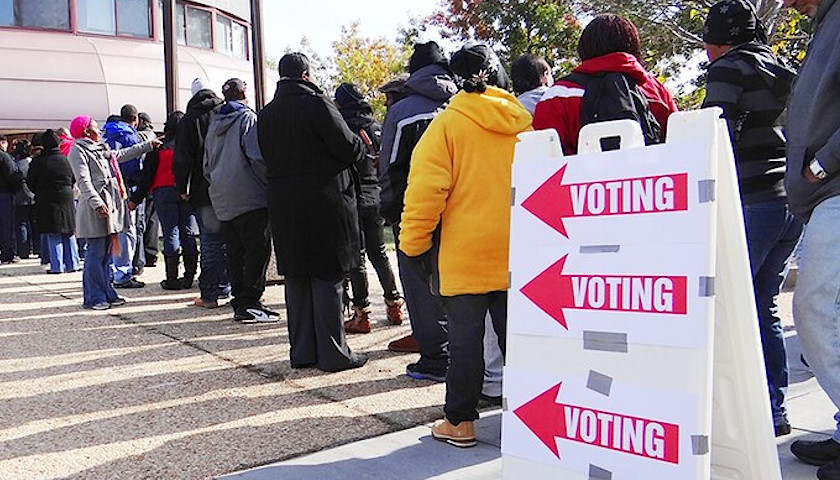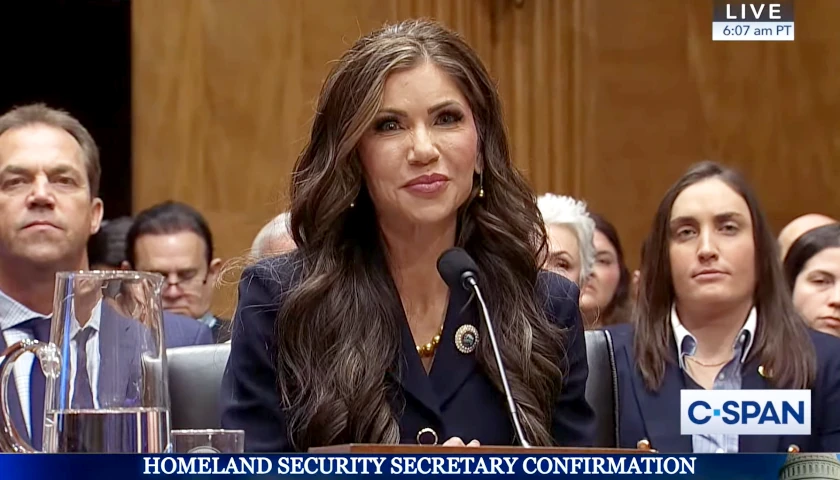Leftists in Detroit, Michigan were dealt a blow at the ballot box Tuesday with the defeat of Proposal P, which received under 33 percent of voters’ support.
Over 69,000 Motor City residents cast ballots in this week’s primary election, of which nearly 47,000 voted to reject the progressive rewriting of the city charter offered by the Detroit Charter Revision Commission.
The ballot proposal would have instituted various left-wing programs including a new “Task Force on Reparations and African American Justice,” an “Office of Economic Justice and Consumer Empowerment,” a “Department of Environmental Justice and Sustainability,” and an “Office of Immigrant Affairs.”
Among the initiative’s supporters were International Brotherhood of Electrical Workers Union Local 58, Black Lives Matter Detroit, City Councilwoman Raquel Castañeda-López (D-District 6), and the left-wing advocacy group Detroit Action.
After the measure failed to win enactment, Tawana Petty, the national organizing director for the leftist nonprofit Data for Black Lives, tweeted that her experience of seeing the outcome was “a sort of psychological trauma I can’t even begin to articulate.”
Opponents’ general objection to the charter revisions was twofold: first, that it would have put Detroit in fiscal dire straits and, second, that it would have compromised law enforcement.
In terms of budgetary effects, Proposal P critics cited a fiscal impact analysis by the city’s chief financial officer that was published in April. According to the evaluation, the revised charter’s costs would have reached $2 billion in four years both through expensive new mandates and lessened revenues. Ultimately, the document warned, Proposal P would put Detroit “on the road to a second bankruptcy,” the city’s first having occurred in 2013.
“We would need to cut police, fire, parks, and all other city services in half,” the analysis read. “We would return to service insolvency and a downward spiral of the tax base.”
Budget-impacting components of the proposal included an income-calibrated fare schedule for public transportation, water-bill payment assistance, increased housing assistance, and income-based property-tax relief. The rewritten charter would also have permitted binding arbitration regarding all municipal labor contracts and imposed union-friendly “responsible contracting” rules for public projects.
Predictions of insolvency were severe enough to generate opposition to the ballot initiative even from many Democrats like Governor Gretchen Whitmer and Mayor Mike Duggan. Earlier this year, Whitmer attempted to have Proposal P stricken from the ballot on the basis that it did not receive her approval. After a Wayne County Circuit Court and a state Court of Appeals ruled in her favor, the state Supreme Court overruled the lower courts and let the question remain.
Regarding the reformed charter’s effect on criminal-justice policy, municipal use of surveillance technology would have seen new limitations, the city council would have had a greater say in selecting the chief of police, and police officers would have lost “qualified immunity,” a doctrine shielding them from most lawsuits. Law-enforcement authorities who came out against Proposal P include state Attorney General Dana Nessel (D), former city Police Chief Ike McKinnon, and Detroit Police Lieutenants and Sergeants Association President Mark Young.
– – –
Bradley Vasoli is a reporter at The Michigan Star and The Star News Network. Follow Brad on Twitter at @BVasoli. Email tips to [email protected].





